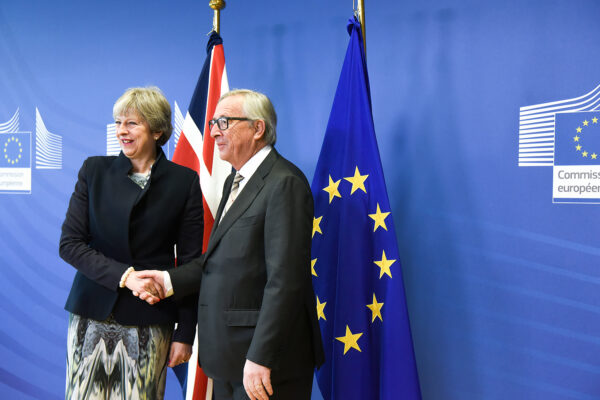
The United Kingdom has reached a provisional agreement with the EU about its withdrawal from the bloc in March 2019.
Here is a summary of what you need to know.
What is in the deal?
The full treaty is almost 600 pages. Here are the key points as they have been reported:
- Britain will pay a “divorce bill” of around €40 billion to cover its long-term financial obligations to the EU.
- The three million EU nationals in the United Kingdom, and the one million Brits who live and work on the continent, will retain their rights.
- Britain will leave the political institutions of the EU in 2019 but continue to apply EU law until the end of 2020. The future relationship could be negotiated during that transition period.
- The whole of the United Kingdom will remain in a customs union with the EU to avoid either closing the border between Northern Ireland and the Republic of Ireland or erecting one between the island of Ireland and Great Britain — at least until a better solution can be found.
The last point is controversial. It would give the EU a say over when Britain might leave such a customs union and make it difficult for the UK to enter into new trade deals until it does.
Who supports it?
- A majority of the cabinet.
- Center-right Conservatives and possibly center-left Labour lawmakers.
- Fabian Picardo, the chief minister of Gibraltar.
- Leo Varadkar, the prime minister of Ireland.
- Conservative-friendly tabloids Daily Express and Daily Mail.
Who opposes it?
- The pro-Brexit right of the Conservative Party, including David Davis, Boris Johnson and Iain Duncan Smith.
- The hard right of the Labour Party, including leader Jeremy Corbyn.
- Anti-Brexit lawmakers, who feel this deal would given Britain the worst of both worlds.
- Nicola Sturgeon and the Scottish National Party, who want Scotland to remain in the EU single market.
- The Democratic Unionist Party (DUP) of Northern Ireland, who fear it would put distance between the province and the rest of the United Kingdom.
- The left-wing The Guardian.
Will it get through?
- May’s first challenge was securing the support of her cabinet. She managed that on Wednesday night.
- The next step is winning the support her Conservative Party and its allies in the DUP. That will be difficult. Many rightwingers have already voiced their opposition before even reading the treaty.
- If they rebel, May would need the support of pro-Europeans in Labour. But they would come under intense pressure from their own leaders to vote “no”.
- The EU’s remaining 27 member states are likely to accept the deal if Britain does.
Does it deliver on the promise of Brexit?
It was never going to. Promises of higher growth, more money for health care and a panoply of free-trade deals were always fantastical.
What is the view from Europe?
With the exception of the Euroskeptic right, the view from Europe is that Brexit is an unnecessary tragedy that will hurt Britain far more than it will the EU.
What is your opinion?
This is the best deal Britain will get. The EU was never going to give Britain full access to its market without Britain paying into the EU budget, respecting EU regulations and accepting EU immigration — and everybody who faults May for failing to secure such a wonder deal knows it.
Learn more
Read the Atlantic Sentinel‘s live blog for more in-depth analysis.
